Introduction
The need for news that centers immigrants has never been more clear than it is today.
Over the past two years, more than 180,000 immigrants have been bused to New York City, and hundreds of thousands more to other cities across the country, exacerbating political tensions. Meanwhile, we face a presidential election where immigration is at the center of the story. All of this is happening against the backdrop of local news collapsing and national media experiencing historic cutbacks.
Documented understood the urgency and necessity of this work when we first launched in 2018, but each year that passes presents new tests we could never have envisioned six years ago. We’ve risen to those challenges, adapting to the needs of New York immigrant communities with new platforms and new verticals, creating award-winning journalism that has shifted policy and building a one-of-a-kind newsroom that publishes in four languages.
When we started this organization, we had one simple objective: to cover immigration issues locally while ensuring that the people at the center of the stories were not just subjects but also readers. We were naive in how simple we thought it would be to achieve that goal.
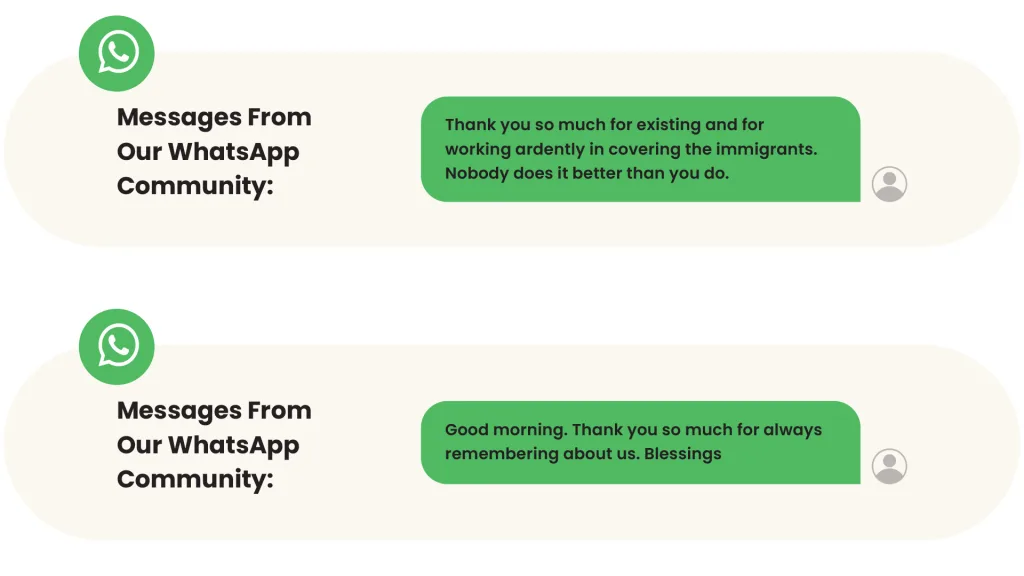
We adopted the practices pioneered by the Listening Post Collective to become a newsroom that listens first and brings the reader into the editorial decision-making process. We were ruthlessly disciplined in our commitment to publishing exactly what the readers — at first undocumented Spanish speakers — said they wanted. Along the way, we ignored the traditional ivory tower principles of journalism, which posit that we as professionals know what’s best for our readers.
This journey took us down paths that made us question the very fundamentals of what it means to do journalism and left us facing questions about the value of this work. We weathered those questions and now have a vibrant newsroom full of multilingual reporters. We created Community Correspondent roles, hiring bilingual reporters who report and write in two languages while being accountable to their respective communities of Chinese, Spanish-speaking and Caribbean New Yorkers.
As Documented begins our seventh year as an organization, we’ve created a strategic plan that will chart our path forward in meeting this moment. We’ve set forth a bold vision that aims to consolidate the impact that we’ve had in New York and expand our learnings across the country. We plan to do this by doubling down on our community-driven journalism model, where we center the needs of the community in our decision-making.
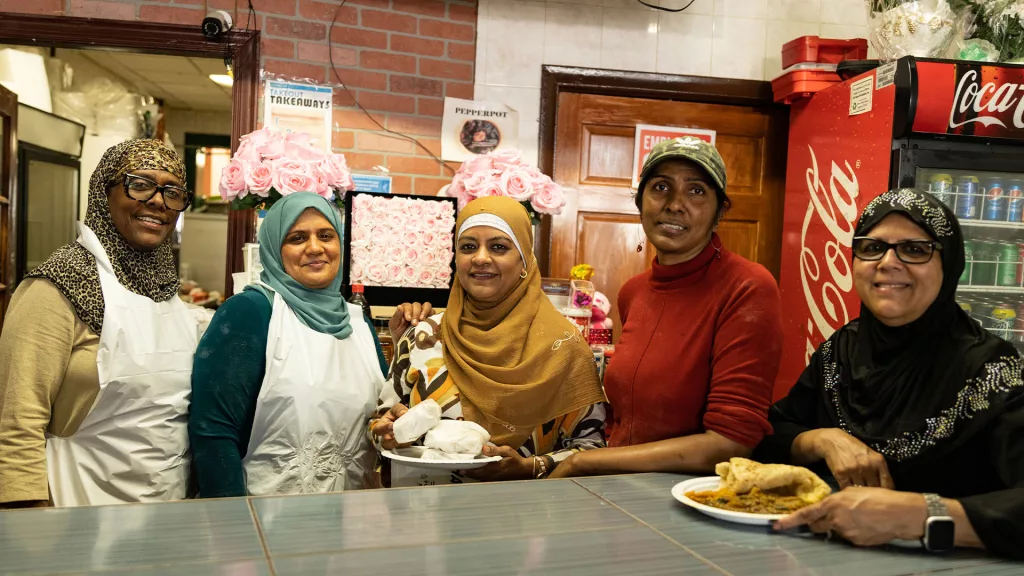
Documented is not only serving immigrant New Yorkers but has grown into a shining example of what local journalism should and can be. We have inspired newsrooms, philanthropists and other organizations around the world to create journalism that centers the needs of the most marginalized.
Beyond facing and reporting on the political questions surrounding immigration, newsrooms will have to contend with the changing demographics of our country. The necessity for this work becomes more evident every day:
- Immigrants comprise about 16% of the U.S. population, or almost 50 million people, and they are projected to account for future workforce growth through at least 2035.
- Most immigrants face significant challenges such as language barriers, lack of community networks, and needs for housing, education, food, and workforce inclusion.
- Immigrants are less likely than American-born readers to access trusted, independent journalism.
- A disproportionate number of ethnic news operations closed during the pandemic alone, erasing key information sources for immigrant communities.
Meanwhile, the broader collapse of the news landscape has meant that misinformation and disinformation have proliferated, with more than 50% of people worldwide concerned about distinguishing fake from reliable information and over a third actively avoiding news. We also know that communities with less local news experience increased political polarization, more government corruption, fewer people running for office, lower attendance at public meetings, a declining sense of belonging, and lower voting rates.
Immigrants account for the majority of growth in our nation’s towns, cities and rural communities. There is no doubt that the strength of our democracy hinges on ensuring they have access to high-quality news and information. In parallel, it’s paramount that the average American has a nuanced understanding of one of the most polarizing issues in our country.
Our industry faces numerous headwinds, as the rise of generative AI will disrupt how and where people get their news and information as well as how it is produced. This will also further complicate the search for a sustainable news business model. In this new reality, direct, one-to-one relationships with readers — which are core to our community-driven approach — will be paramount.
Journalism has tremendous power. It has the power to convene people and bring them together. It has the power to expose harm and protect those who are most vulnerable. It has the power to educate and inform people in making life-changing decisions. How we wield that power is up to us. At Documented, we’re choosing to wield that power in service of low-wage immigrants in New York and beyond.
While there is much to be concerned about when it comes to the demise of local news and the devastating effects it may have on our democracy, we see an opportunity to write a new chapter for journalism, which bridges the traditional tenets of holding the powerful to account but is now community-centered, multilingual and meets people where they are convening physically and digitally. We’re proud to be part of a generation of newsrooms that are reimagining what this field can accomplish and pushing the boundaries of what it means. We look forward to you joining us along this journey.

Our Values: Community-Driven Journalism
Upon completing our first strategic plan, Documented has grown from an organization of two (co-founders Max Siegelbaum and Mazin Sidahmed) to a team of 17. This process inspired a great deal of soul-searching on what we stand for as an organization, and one thing was clear: We needed to define what our community-driven journalism model meant to us.
We are reaching immigrants, in their own languages, with critical information that supports their access to jobs, places to live, food, schools for their children and much more; helps them avoid those who would take advantage of them; and builds deep connections, critical trust and community and civic engagement. In addition, by elevating immigrant concerns and voices, we offer an alternative to the extractive and often polarizing reporting about immigration for policymakers and all readers who care about a more knowledgeable, inclusive and accountable democracy.
In practice, Documented’s community-driven journalism model means:
- We center trust. Through in-depth research, continuous two-way communication and journalists who hail from immigrant communities and regularly show up in person, we build deep and enduring connections with immigrants. This, in turn, fuels resonant reporting, and also ensures that it reaches open ears.
- We create independent, responsive journalism. Based on profound audience insights, Documented creates service journalism: actionable guides and information that address emergent needs in the languages immigrants speak. We also produce journalism that holds institutions and individuals interacting with immigrants to account, and hard-hitting, investigative reporting that includes democratizing data projects that create transparency around issues relevant to immigrant communities, such as our Wage Theft Monitor.
- We meet our readers where they are. Documented delivers relevant journalism through traditional channels and via high-use technology platforms. We were among the first news organizations to engage Spanish-speaking audiences through a novel WhatsApp channel, and we are pioneering the use of WeChat and NextDoor to reach Chinese and Caribbean audiences, respectively.
In addition to our primary immigrant audiences, Documented lifts up immigrant narratives through our Early Arrival newsletter for policymakers, business leaders, nonprofit professionals, and insiders who are shaping policies and practices relevant to immigrant inclusion and our pluralist democracy.
Thanks to an unwavering commitment to quality journalism among Documented’s leaders and staff, an embrace of calculated risk-taking and learning to reach new audiences, and the investment of organizations and funders willing to get behind this work, Documented has seen meaningful impact since our founding in 2018.
We hope that we, along with many other visionary thinkers in the field, can help inspire a renewed commitment to a robust media sector that reaches growing immigrant communities — for the sake of all of us and a stronger future.
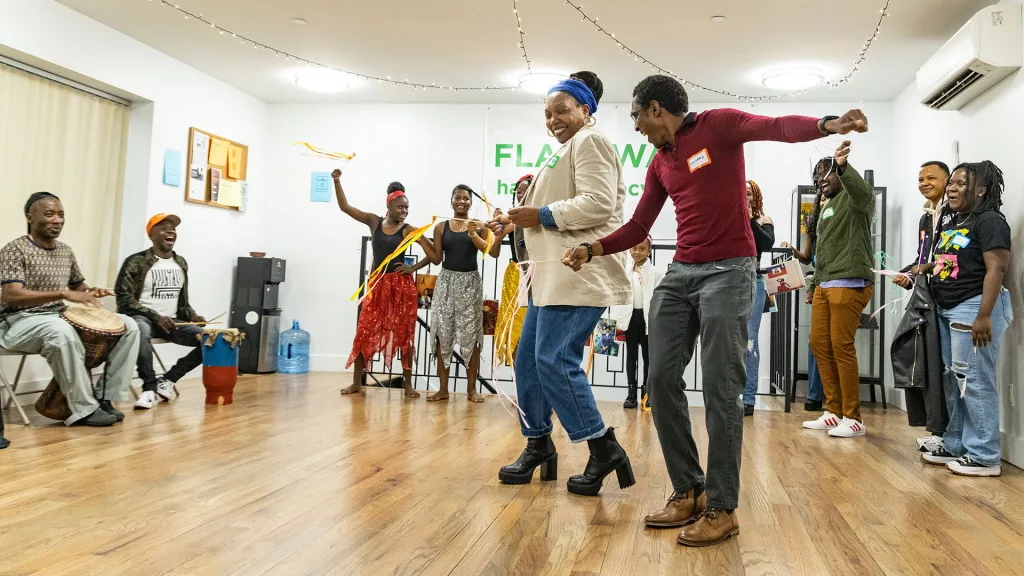
Vision
Documented envisions a world where low-wage immigrants have access to the information they need to live flourishing, civically engaged lives.
Mission
Documented uses community-driven journalism to expand access to news and critical information that help immigrants in New York and across the country thrive.
Tagline
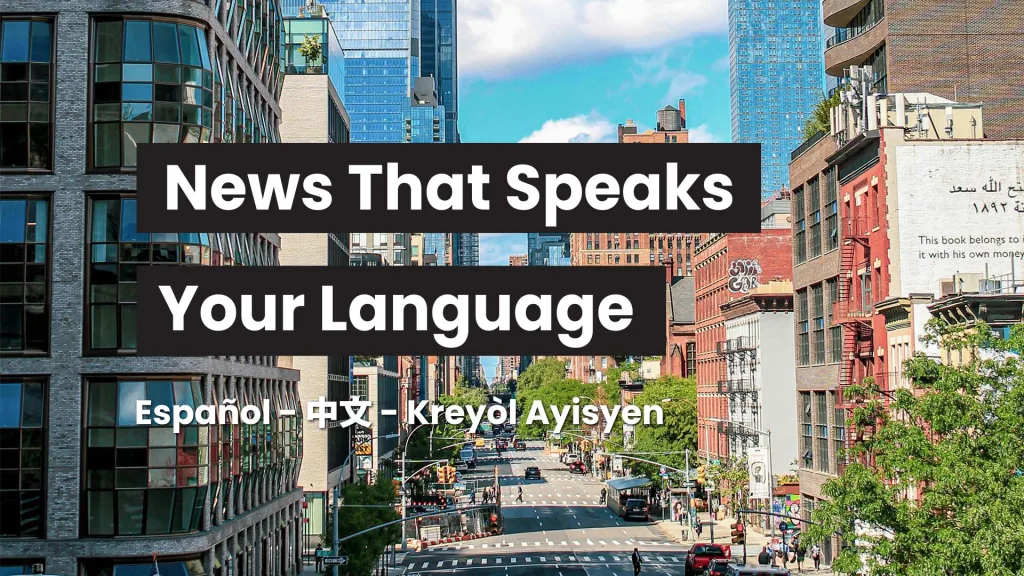
Theory of Change
By actively building trust with low-income immigrants, listening to their concerns and engaging with them on the platforms they use, Documented creates impact on four levels:
- Immigrants are heard, represented, and empowered, with access to information, opportunities, and services.
- Advocates and networks supporting immigrant communities are better informed and enabled to create change.
- The journalism industry embraces Documented’s methodology and elevates issues and topics covered by Documented.
- Documented catalyzes structural change, including advancing policy and institutional progress.
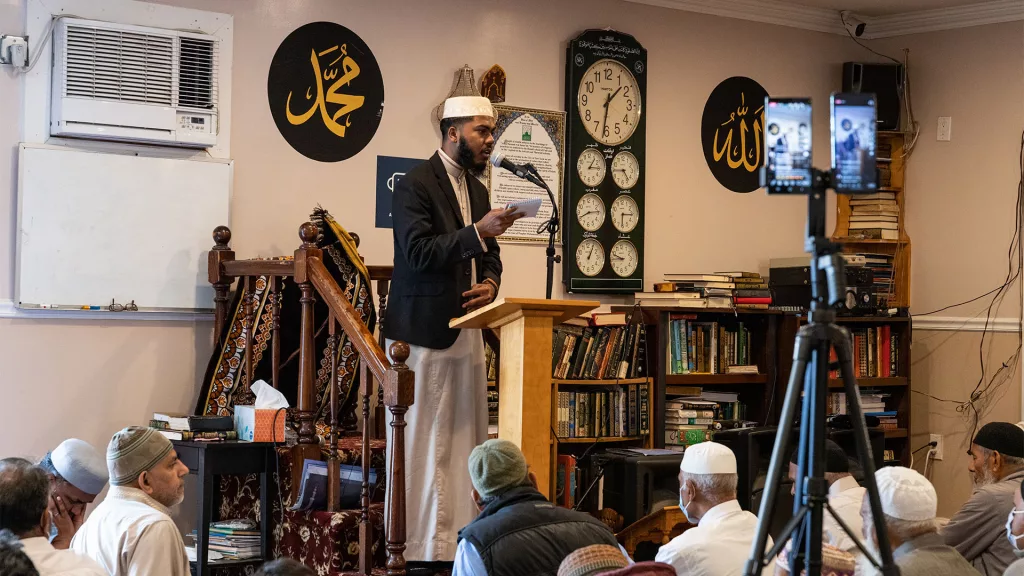
The Next 3 Years: Key Objectives
Grow in breadth and depth: Be the leading community-driven news source for low-wage immigrant New Yorkers.
Documented seeks to shift from being a weekly or periodic news source for low-wage immigrants to a publication immigrants come to rely on daily. In building this critical part of our work, we will focus on both expanding the breadth of our coverage as well as increasing the depth of its real-world impacts. The community-driven news model means that all of these are critical measures of success.
- Focus on audience growth among Spanish-speaking, Chinese, and Caribbean New Yorkers, reaching deeper market penetration among these audiences.
- Continue to meaningfully engage readers through structured community research, in-person events and ongoing digital 2-way conversations.
- Real-world impacts: Continue to create quality, in-depth reporting that moves the dial for individuals and communities.
- Diversify types of content and expand quality reporting across all platforms.
Impact policies and systems: Support meaningful policy and systems change through stories that lift up the needs and perspectives of low-wage immigrants.
Documented will continue to focus on high-quality investigative reporting, including projects that create transparency and democratize data, to help spur positive system-wide change. This work is critical to immigrant audiences as well as to policymakers, nonprofit professionals and others who care about immigration issues.
- Build a team that can take on ambitious projects that are data-driven and investigative in nature, while continuing to take cues from community listening priorities.
- Build out our Wage Theft Monitor to create a New York State Worker Abuse/Business Monitor, driving hard-hitting labor stories while creating infrastructure that enables it to be taken on nationally.
- Grow Early Arrival audience of policymakers, nonprofit leaders and insiders.
- Grow Documented’s visibility across social media platforms frequented by insiders.
Meeting the national need: Change how newsrooms across the country serve immigrant communities through training and by launching a cooperative news coalition.
In response to over 100 inquiries for support in replicating our community-driven approach, Documented will formalize and share our model and products with outlets across the country, thereby increasing the number of immigrants who have access to a quality and responsive source of news. This goal includes providing trainings to build capacity as well as creating a cooperative coalition to make resource and story sharing more efficient and expand the reach of immigration reporting.
- Create a curriculum focused on key elements needed to create and build out successful community-driven news products.
- Pilot the curriculum with a cohort of six newsrooms; iterate and scale to support 18 newsrooms in Year 3.
- Build a community of practice with trained newsrooms.
- Develop, test and share technology with partners that can help them better serve immigrant communities.
- Share ongoing learnings through articles and webinars to support knowledge-building in the field and replication.
- Initiate a coalition of community-driven, immigrant-facing newsrooms dedicated to close cooperation on substantive journalism, operations, fundraising and broad communications.
Diversify while growing: Build our community of supporters who will diversify and expand Documented’s revenue and increase sustainability.
Critical to Documented’s success is continuing to generate the revenue needed to maintain and grow our work. We will approach this effort with intention, a commitment to investing in and deepening strategic and aligned partnerships, and building new, meaningful sources of sustainable funding.
- Increase our Board to ideally 10 supportive, representative and aligned individuals, per our Board guidelines, and a new Advisory Committee to expand our community of care.
- Cultivate more large and multiyear institutional funders.
- Build a major gifts program with aligned individual donors.
- Enhance earned revenue, with a focus on advertising and consultative services.
- Increase the visibility of Documented
Solidify people-first operations: Strengthen Documented’s organizational infrastructure to support our thriving culture and enhance human potential, innovation, and continuous learning.
As Documented grows, we will need to take intentional steps to maintain our uniquely positive and diverse staff culture with responsible human resources and operational systems that center the humanity of our employees, facilitate internal communications across a diversity of viewpoints and enable us to pursue this work with passion, joy and maximum impact.
- Maintain a newsroom that is reflective of the community that we serve in lived experience as well as language ability.
- Continue to build and maintain strong and equitable HR policies, including pathways for growth, competitive compensation and strong frameworks for culture building and maintenance.
- Ensure responsible finance and investment processes to steward and grow resources, including a reserve fund.
- Support leadership transitions and teamwork, including creating mechanisms for constructive discussions that value diversity of backgrounds, perspectives and opinion.

Documented’s History: Immigrants and Innovation
Timeline + Key Highlights
Documented has consistently experienced growth in demand for our journalism and produced meaningful real-world impact since our founding. Below are some of the highlights over the last five years.
2018: With an initial grant, co-founders Mazin Sidahmed and Max Siegelbaum start Documented with vision to create non-extractive journalism for immigrants.
2018-2021: Documented runs a series of investigations into government and pension investment funding for private detention facilities, and collaborations in New York between court and ICE officials. The reports bring light to these issues and lead to impacts including: New York state changing its policy allowing ICE arrests in town and village courthouses, the New Jersey governor signing a law to ban contracts with private detention facilities, and Canadian and New Jersey state pensions divesting from private detention facilities.
2019: Documented Semanal launches. Our Spanish-language newsletter delivered via WhatsApp marks an innovation in the journalism field with the goal of delivering quality, responsive information to Spanish-speaking immigrants. The platform is selected based on Documented research on low-wage Spanish-speaking immigrants.
2020-2021: Documented covers the pandemic’s impact on low-wage immigrants with original reporting, and starts winning awards. New York City’s nyc.gov website lists Documented as a place to find critical information to navigate pandemic resources. Documented collaborates on the creation of a documentary, I Know What Pandemic Means (Sé lo Que es Pandemia), to lift up immigrant voices and respond to immigrant readers who say they want to read reporting that doesn’t portray immigrants as villains or victims.
April 2021: Documented creates important coverage and guides to support immigrants accessing the major new Excluded Workers Fund. We have since published over 150 multilingual guides, know-your-rights explainers, and other informative pieces, and we respond to direct messages every day.
2022: With new funding, Documented hires community reporters to expand coverage, not only to New York City’s 700,000 Spanish-speaking immigrants who prefer Spanish-language press, but also to its more than 500,000 Chinese-speaking immigrants and 500,000 Caribbean immigrants.
March 2022: A Documented report — Bronx Fire Survivors Say the City is Not Doing Enough — exposed the New York City mayor’s office for distributing only 10% of the fund for Bronx fire survivors, which led the mayor to announce he was making $3 million available to survivors.
March 2023: Documented breaks a story about Millions Stolen from Chinese Immigrants in HomeX Ponzi Scheme, a dual Chinese- and English-language investigative report exposing a WeChat-based Ponzi Scheme targeting Chinese immigrants. The report was shared with the FBI to support victims’ claims.
August 2023: Documented launches the Wage Theft Monitor, the largest public repository of data on New York businesses found guilty of wage theft. Following reader concerns, we reported in 2022 on wage theft among subway, construction and sports workers, which led to returned wages. The monitor was created in partnership with ProPublica, and has led to coverage and investigations by other media and immigrant organizations. Documented’s own first deep dive into wage theft in the horse racing industry led to increased regulation. Legislators informed by the monitor introduced three bills in Albany to prevent and punish wage theft.
December 2023: Documented launches channels in Chinese on WeChat and for Caribbean communities on NextDoor based on extensive research of the needs and reading proclivities of these communities.
May 2024: Documented finalizes a strategic plan for the next three years, which includes strengthening work in New York and creating trainings and a network to support the growth of community-driven journalism across the country.
Recognitions and Awards
Documented has prided itself on quality journalism and has been recognized through meaningful awards for stories and our outstanding journalists. Our community-driven journalism model has also attracted high-profile national funding.
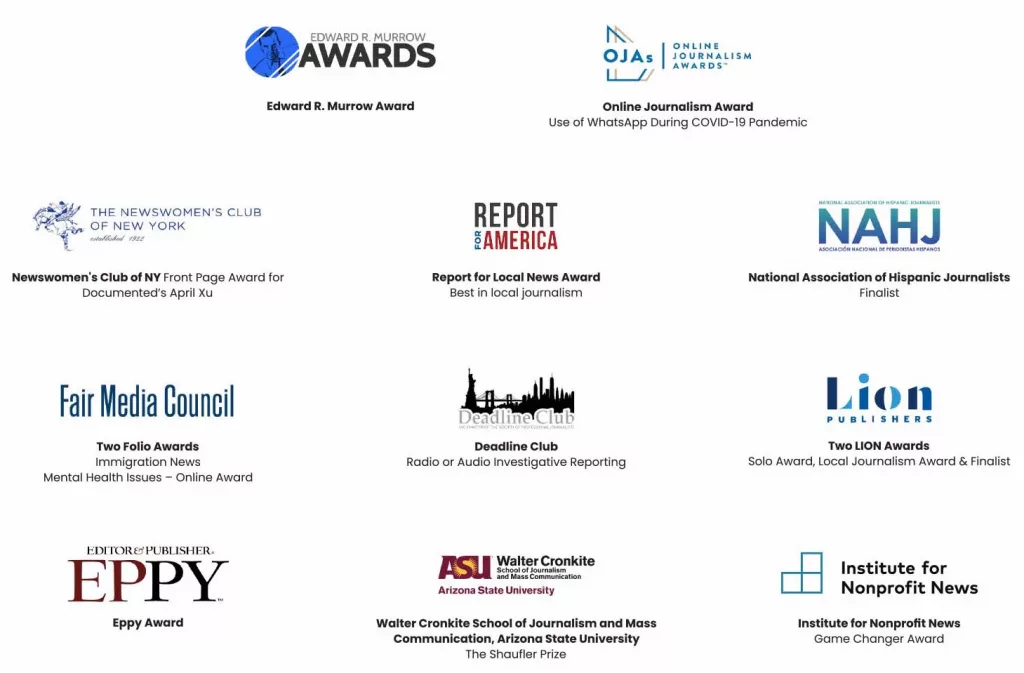
Support
Documented has grown its budget over five years to $2.5 million – and seen major year-over-year expansion since our founding. We are grateful to our individual donors and our larger institutional funders, many of whom are recognized below. Our partners have provided solid and fertile ground for us to take risks, prize learning and care for each other and our communities.
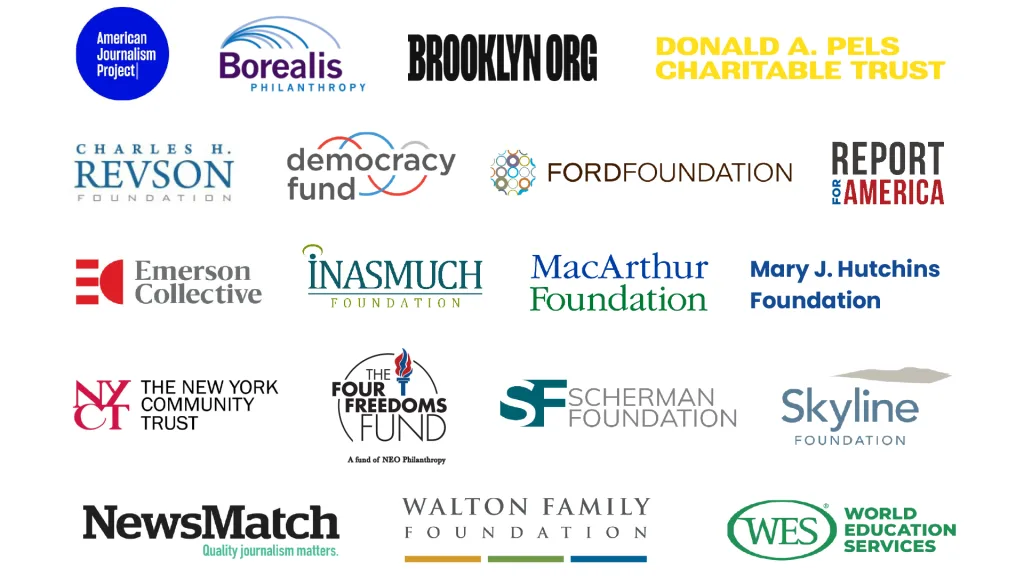
Conclusion
In its first six years, Documented has built the team, values-driven community engagement, and intelligent reporting that has made us an example for newsrooms across the country. Over the next three years, the ambitious goals outlined in this strategic plan, supported by a comprehensive operational strategy, will position Documented to significantly enhance our impact in New York and drive transformational change within newsrooms across critical states and cities. This collective effort will expand access to high-quality news for millions of immigrants and meaningfully support democratic processes and inclusion.
This report was put together through an 11 month process in consultation with Documented’s leadership, staff and Board. Special thanks to our lead consultant Erin Mazursky (Participatory Democracy Lab) as well as Marie-Marguerite Sabongui, who supported the strategy work, and Ryan Sparrow (Andor Consulting), who led our operational planning process. We also appreciate our designer Michael Haynes.
Thanks also to Jason Alcorn, Courtney Eshelman, Jesse Hardman, Damon Kiesow, Andrew Losowsky, Carolyn Powers, Kathryn Schotthoefer, and Marcy Stech.
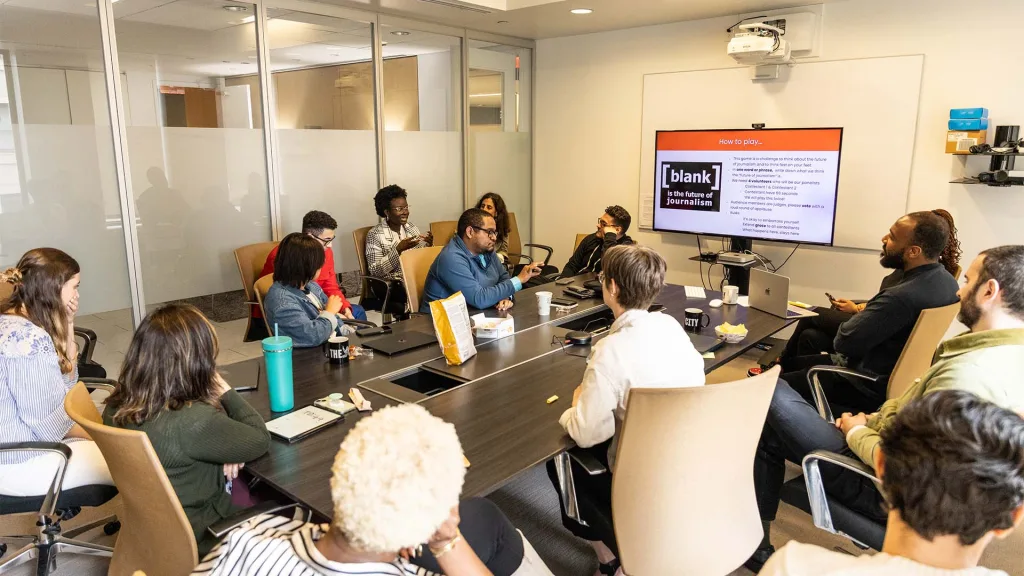
The Documented Board
Josh Benson, Chair
Ethar El-Katatney
Michael J. Hirschhorn
Christiana Mbakwe-Medina
Dr. Wilneida Negrón
The Documented Team
Mazin Sidahmed, Co-Executive Director
Max Siegelbaum, Co-Executive Director
Fred Almonte, Media Sales Development Lead
Khadija Collins, Operations Manager
Madeline Faber, Deputy Director of Communities
Jeff Garcia, Director of Finance, Operations & Special Projects
Amir Khafagy, Report for America Member, Labor Reporter
Kathryn Krawczyk, Newsletter Editor
Adriana Lacy, Deputy Director of Audience
Clarissa A. León, Deputy Editor
Rebecca Neuwirth, Chief Strategy Officer
Melissa Noel, Caribbean Community Editor
Rommel H. Ojeda, Community Correspondent, Spanish-Speaking Communities
Fisayo Okare, Newsletter Writer
Nicolás Ríos, Chief Product, Education and Research Officer
Ralph Thomassaint Joseph, Community Correspondent, Caribbean Communities
April Xu, Community Correspondent, Chinese Communities
Advisory Committee
Molly de Aguiar
Roy Bahat
Holly Diamond
K.A. Dilday
Burhan Jaffer
Damon Kiesow
Andrew Losowsky
Christopher Marlborough
Tom McGeveran
Nazanin Rafsanjani
Mika Rao
Andrew Rasiej
Liz Robbins
Rachel Strom
Leslie Teng









